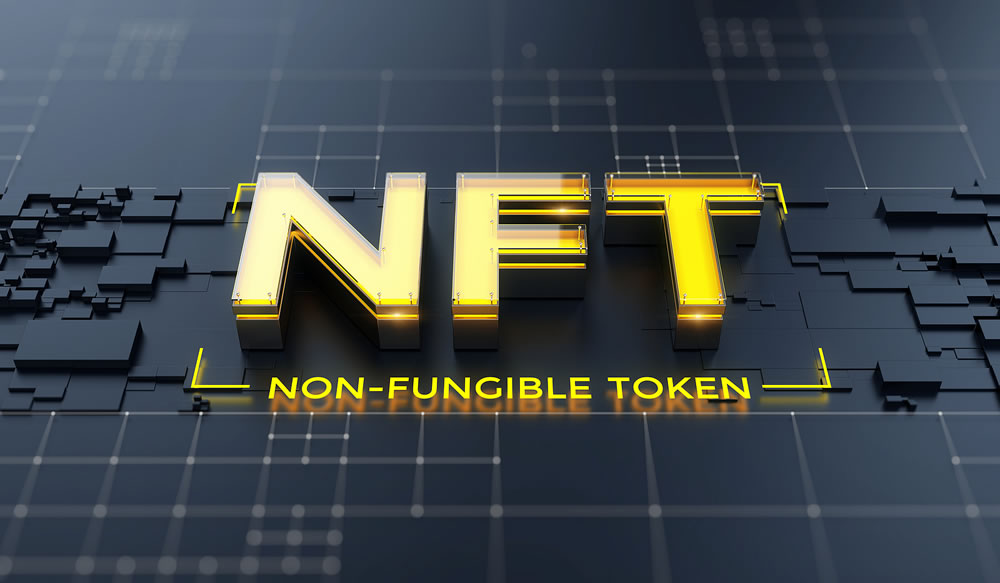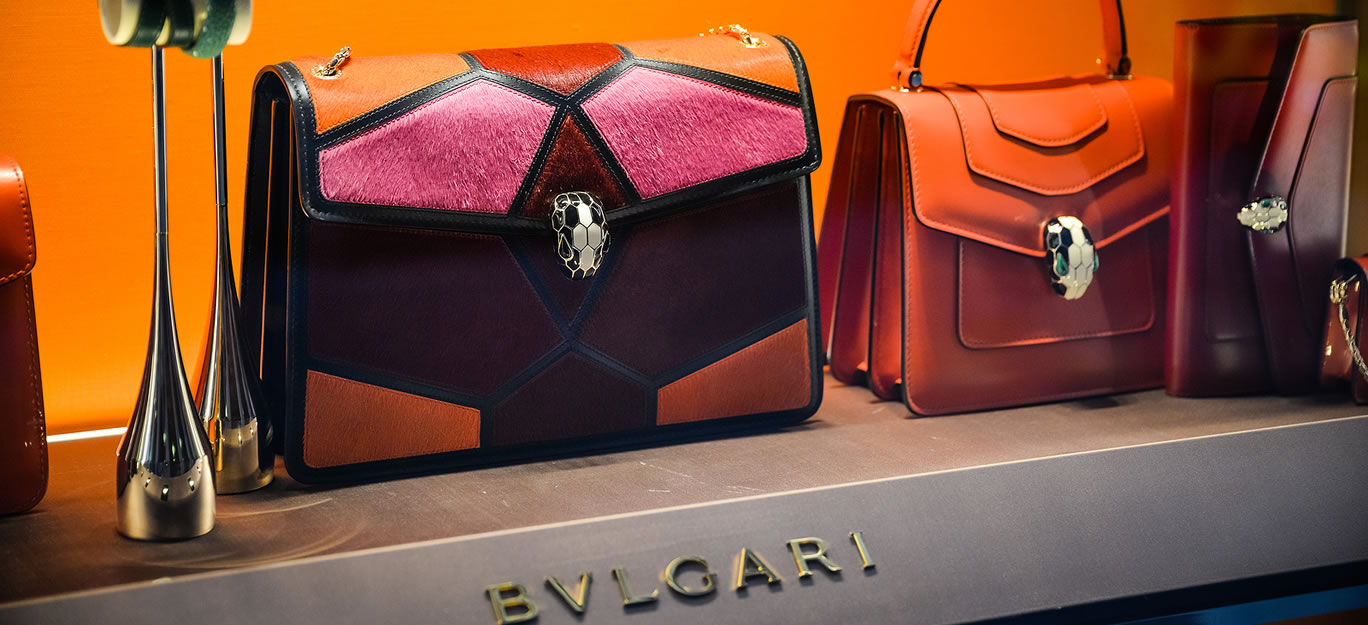The cryptocurrency space is now worth over $2 trillion, and everyone from high-end car manufacturers to luxury travel companies are jumping on board to ride the wave, allowing customers to pay with popular digital currencies like Bitcoin and Ethereum in a bid to retain their most high-net-worth customers and offer them a more tailored experience.
The growing number of opportunities in the cryptocurrency space, ranging from NFTs to payment solutions, has even made its way into the luxury fashion space, with blockchain solutions being used for more than just a means of payment but in preventing falsification of authentic goods, too. And, as innovative solutions to both existing and new problems continue to be developed in the field, we can expect to see some exciting things ahead for this trillion-dollar industry that promise more emerging opportunities in the coming years.
The future of fashion brands has arrived

The fashion industry has always thrived on riding current trends, with its growth hinging on how well top brands can lead the way. It isn’t just about the latest design styles and ‘it’ garments and accessories, but new ways of marketing and selling, too – so it’s perhaps unsurprising to see that cryptocurrency is, in various forms, now being adapted by the likes of Bvlgari, Prada and Hublot, to name but a few.
A form of technology that was once viewed as a passing fad that would never catch on, crypto and the blockchain technology on which it is based has gone on to become not just a current trend, but the future of the internet and technology, with the diverse solutions it provides changing the ways in which brands do business and the new ideas they can implement to keep things fresh and exciting.
Two big brands that are leading the path of top luxury fashion brands in adopting Bitcoin, blockchain and cryptocurrency are Hublot and the aforementioned Bvlgari, both of which have adopted blockchain solutions that put them ahead of their competitors.
The pair have implemented e-warranty platforms for their customers to allow them to authenticate their products by taking a picture of the products they buy – thus increasing buyer confidence by ensuring they can always be certain they have purchased a genuine item and avoid fakes.
In addition to counterfeiting solutions, exchanges such as Reddot.com that help fashion brands exchange Bitcoin and Ethereum to stablecoins such as USD Tether, are pivotal to the success of the marriage between cryptocurrencies and fashion.
And in the case of Hublot, it has since taken its adoption of blockchain technology one step further, and now sells some of its most valuable timepieces in Bitcoin to those who prefer to pay with crypto – a move that has won it much praise from investors and that has seen many other leading luxury fashion brands also begin to follow suit.
What luxury fashion brands fear about cryptocurrency

Despite its obvious virtues when it comes to propelling the luxury fashion world forward, the growth of blockchain solutions, while an interesting development, also pose a series of problems.
An associate professor at the Fashion Institute of Technology says that cryptocurrency is revolutionising the way fashion brands do business, particularly due to the payment solutions that blockchain and cryptocurrency provide – but nevertheless, the questions of price volatility, regulation, and bitcoin as more of a store of value than a currency still linger. How well do bitcoin and other cryptocurrencies stand in comparison to fiat currencies? How much backing do these cryptocurrencies have from the federal government of countries?
The associate professor at the Fashion Institute of Technology argues that as there are no regulatory bodies that help to stabilise the price of Bitcoin and other cryptocurrencies, using Bitcoin as a means of payment is dicey and could be detrimental for the fashion industry as some form of financial stability is essential. Companies that accept Bitcoin and Ethereum as payment might suffer from price volatility issues – but some companies already benefit from investing their crypto or trading at redot.com.
While Bitcoin is touted as a great store of value, with many investors believing that it might now be a better store of value than gold, there are still fears around how much the value can hold since there are no regulations. For exclusive retailers, for example, how much does the value of one Bitcoin hold now compared to what it will hold a year from now? Will the value remain the same? Or will it fall drastically?
As a decentralised currency, a regulatory body for cryptocurrency means the central body controls the prices of these currencies. One of the major selling points of Bitcoin is that it is decentralised, meaning its price is based on demand and supply – however, market manipulation by whales has proven that there is a need for some form of regulation in the space long-term.
The price of Bitcoin fell by almost $5,000 in one week, and then in the early days of October rose above the $55,000 mark, even reaching $60,000 at some point – raising some obvious concerns surrounding volatility. This uncertainty is worrying for many high-end fashion brands, especially those that wish to receive payment for their products in Bitcoin. Brands run the risk of losing value on their products when the price of Bitcoin falls drastically and at short notice – which has caused many to continue waiting in the side lines until now.
Cryptocurrency opportunities: This is where fashion takes a dive

The volatility of cryptocurrencies has led decentralised finance projects such as Onomy Protocol to build progressive stablecoin projects. NDAU, an adaptive digital currency, protects top brands from cryptocurrencies’ volatility, further opening the doors for top luxury brands to key into cryptocurrency payment solutions.
NDAU acts as a store of value, protecting the value of people’s money and reducing the risk of price volatility.
Non-Fungible Token (NFT) is another branch of cryptocurrency and blockchain that fashion industries are taking advantage of, with companies such as Nike creating NFT of their original products. These NFTs are digitised versions of their products, giving customers access to original Nike products. Louis Vuitton has also dived into the NFT sea, creating NFTs to track its luxury goods.
Meanwhile, we’ve also seen top luxury brands such as De Beers collaborate with other smaller companies to create a blockchain-based tracking solution for their supply chain, from the source to the final consumer. The enormous potential of the tracking service, Tracr, makes the future of fashion in blockchain technology even more interesting.
The growth of NFTs is also changing what is possible in the fashion space. NFT Tech is a new solution that helps in the minting, collection and trading for NFTs, with low gas fees. With NFT Tech, fashion brands can harness the potentials in NFTs and reach more buyers and collectors faster.
The fashion industry has a plethora of options to choose from to thrive in the two trillion-dollar cryptocurrency industry, and we’re only just beginning to see things unfold – but experts predict that over the next decade, things could begin to look very different, with plenty of exciting changes in store.
The new trading world
Already, new partnerships between cryptocurrency projects, exchanges like Redot and market platforms are springing up all over the place, opening up new opportunities for new cryptocurrency tokens and coins.
For example, FLOKI Inu and CrtptoCart, a cryptocurrency payment processor and e-commerce marketplace, recently signed a ground-breaking agreement allowing the 20,000 Floki Inu coin holders to buy things on CryptoCart using FLOKI Inu – as well as doing so without Know Your Customer (KYC) verification.
As more and more industries open their doors to cryptocurrency, whether as a method of payment or store of value, the importance of cryptocurrency is only set to increase. And the luxury fashion industry will be a part of the movement, continuing to implement different solutions using blockchain technology and all the amazing innovations it offers and promises.






















